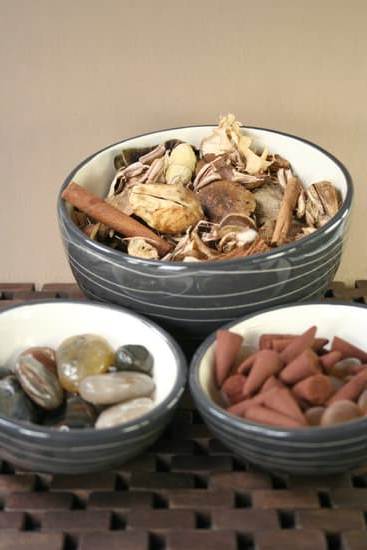Aromatherapy, a practice that involves using essential oils to improve physical and psychological well-being, has gained popularity in recent years. However, the question remains: is aromatherapy a pseudoscience? While some critics argue that it lacks empirical evidence to support its claims, proponents of aromatherapy swear by its benefits on mental health and overall wellness.
The history of aromatherapy can be traced back to ancient civilizations such as the Egyptians, Greeks, and Romans who used aromatic plants for medicinal purposes. Today, aromatherapy has evolved into a holistic healing approach that combines the power of essential oils with therapeutic techniques to promote relaxation, reduce stress, and enhance mood.
Despite its long-standing history and widespread use, aromatherapy faces criticism from skeptics who question its scientific validity. Some argue that the limited research on aromatherapy fails to meet rigorous scientific standards, leading to doubts about its efficacy. However, advocates believe that the subjective nature of aromatherapy experiences should not undermine its potential benefits on mental health and emotional well-being.
History of Aromatherapy
Aromatherapy has a rich history that dates back thousands of years, with roots in ancient civilizations like Egypt, China, and India. In these early societies, essential oils extracted from plants were used for their medicinal and therapeutic properties. The Egyptians, for example, used aromatic herbs and resins in embalming practices and for spiritual rituals. Similarly, the Chinese incorporated essential oils into traditional medicine to promote healing and balance within the body.
One of the key figures in the modern resurgence of aromatherapy is Rene-Maurice Gattefosse, a French chemist who coined the term “aromatherapy” in the early 20th century. Gattefosse accidentally discovered the healing properties of lavender oil when he applied it to a burn on his hand. This serendipitous event led him to further research the benefits of essential oils for medicinal purposes and paved the way for aromatherapy as we know it today.
As interest in natural healing methods grew throughout the 20th century, aromatherapy gained popularity in Western society. Today, aromatherapy is widely used as a complementary therapy to support overall well-being. While some skeptics may question its efficacy and label it as pseudoscience, there is increasing scientific evidence supporting the benefits of aromatherapy for mental health, relaxation, stress relief, and more.
| History | Significance |
|---|---|
| Ancient civilizations like Egypt, China, and India used essential oils | Used for medicinal and therapeutic purposes |
| Rene-Maurice Gattefosse coined the term “aromatherapy” | Discovered healing properties of lavender oil |
| Aromatherapy gained popularity in Western society in the 20th century | Used as complementary therapy for well-being |
What Is Aromatherapy
Aromatherapy is a holistic healing treatment that uses natural plant extracts to promote health and well-being. These plant extracts, also known as essential oils, are believed to have therapeutic properties that can help improve physical, emotional, and mental health. Aromatherapy has been practiced for centuries in various cultures around the world, with its roots dating back to ancient civilizations such as the Egyptians, Greeks, and Romans.
How Does Aromatherapy Work
The practice of aromatherapy involves inhaling the aroma of essential oils or applying them to the skin through massage or other methods. When inhaled, the molecules from the essential oils stimulate the olfactory system in the brain, which is linked to emotions and memory.
This can trigger various responses in the body, such as relaxation, stress relief, improved sleep, or increased focus and energy. When applied topically, essential oils are absorbed through the skin and can have localized effects on muscles or joints.
Is Aromatherapy a Pseudoscience?
Despite its long history and widespread use, aromatherapy has faced criticism from some skeptics who question its scientific validity. The question of whether aromatherapy is a pseudoscience revolves around the lack of concrete evidence supporting its effectiveness in treating certain conditions.
While there is research supporting some benefits of aromatherapy, more studies are needed to further validate its claims. It is important to approach aromatherapy with a critical eye and consider it as a complementary therapy rather than a standalone treatment for serious medical conditions.
Scientific Evidence Supporting Aromatherapy
Aromatherapy, the use of essential oils for therapeutic purposes, has a long history spanning centuries. Despite its traditional roots, aromatherapy is increasingly gaining recognition in the scientific community for its potential health benefits. Scientific evidence supporting aromatherapy is beginning to accumulate, shedding light on the mechanisms through which essential oils may have positive effects on both physical and mental health.
One key aspect that supports the scientific validity of aromatherapy is the growing body of research investigating the pharmacological actions of essential oils. Studies have shown that certain compounds in essential oils can interact with neurotransmitter receptors in the brain, leading to changes in physiological and psychological responses. For example, lavender essential oil has been found to have a calming effect, potentially due to its interaction with GABA receptors in the central nervous system.
Furthermore, clinical trials focusing on specific health conditions have also provided evidence for the effectiveness of aromatherapy. Research conducted on conditions such as anxiety, depression, insomnia, and pain management has shown promising results when using essential oils as complementary therapies. These studies suggest that aromatherapy can have real benefits for individuals seeking alternative or adjunctive treatments for various health issues.
| Scientific Evidence | Supporting Aromatherapy |
|---|---|
| Research on pharmacological actions of essential oils | Interactions with neurotransmitter receptors |
| Clinical trials on specific health conditions | Anxiety, depression, insomnia, and pain management |
Criticisms of Aromatherapy as a Pseudoscience
Aromatherapy has been a subject of debate in the scientific community, with some critics labeling it as a pseudoscience. The perception that aromatherapy falls into the realm of pseudoscience often stems from the lack of concrete scientific evidence to support its claims. Critics argue that the mechanisms by which essential oils are said to work on the body are not always well-defined or understood, leading to skepticism about the effectiveness of aromatherapy.
Lack of Regulation and Standardization
One of the main criticisms of aromatherapy is the lack of regulation and standardization in the industry. Unlike pharmaceuticals, essential oils used in aromatherapy are not strictly regulated by government agencies for their safety and efficacy. This can lead to inconsistencies in product quality, potency, and purity, making it challenging for consumers to know what they are truly getting when purchasing essential oils.
Anecdotal Evidence vs. Scientific Studies
Another point of contention is the reliance on anecdotal evidence rather than rigorous scientific studies to support the claims made by proponents of aromatherapy. While many people may swear by the benefits they have experienced from using essential oils, these personal testimonies do not hold the same weight as peer-reviewed research studies. Critics argue that more robust scientific research is needed to substantiate the therapeutic effects attributed to aromatherapy.
Conflict With Conventional Medicine
Finally, another criticism leveled against aromatherapy is its perceived conflict with conventional medicine practices. Some healthcare professionals view aromatherapy as an alternative or complementary therapy that may not always align with evidence-based medicine. This disconnect can lead to skepticism within the medical community about incorporating aromatherapy into treatment plans for patients. Despite these criticisms, advocates for aromatherapy continue to explore its potential benefits and push for more scientific research to support its use in promoting health and well-being.
Dispelling Misconceptions About Aromatherapy
A common misconception surrounding aromatherapy is that it is purely based on pseudoscience. While some may argue that the efficacy of aromatherapy is not backed by concrete scientific evidence, it is important to recognize that this practice has been used for centuries in various cultures around the world.
The essence of aromatherapy lies in using essential oils extracted from plants to promote physical and psychological well-being. These oils are believed to have therapeutic properties that can alleviate stress, improve sleep quality, and enhance overall health.
Despite the lack of extensive scientific research directly supporting the effectiveness of aromatherapy, many users swear by its benefits. The anecdotal evidence provided by individuals who have experienced positive results cannot be disregarded.
Additionally, some studies have shown promising results in terms of the impact of essential oils on mood regulation and relaxation. While more research is needed to fully understand how aromatherapy works on a physiological level, it is clear that many people find relief and comfort through its practice.
It is crucial to approach aromatherapy with an open mind and a willingness to explore its potential benefits. Rather than dismissing it as a pseudoscience, individuals should consider giving it a try under the guidance of a trained professional. With proper education and understanding of how essential oils can affect our senses and emotions, we may discover new ways to enhance our mental and emotional well-being through the power of aromatherapy.
Benefits of Aromatherapy on Mental Health
Aromatherapy has gained popularity in recent years as a holistic approach to promoting overall well-being, including mental health. The use of essential oils derived from plant extracts is believed to have psychological and emotional benefits. Many individuals turn to aromatherapy to alleviate symptoms of stress, anxiety, and depression, seeking a natural alternative to conventional treatments. While some may question its effectiveness, numerous studies have shown that aromatherapy can indeed have a positive impact on mental health.
To better understand the benefits of aromatherapy on mental health, it is important to consider the science behind it. Essential oils contain volatile compounds that can interact with the olfactory system in our bodies, triggering various physiological responses. For example, inhaling lavender essential oil has been shown to reduce anxiety levels and promote relaxation.
Similarly, citrus scents like lemon or orange can uplift mood and improve cognitive function. These mechanisms demonstrate how aromatherapy can influence our emotions and mental well-being.
Here are some key benefits of incorporating aromatherapy into your daily routine for mental health:
- Stress relief: Certain essential oils like lavender, chamomile, or rose can help calm the mind and reduce feelings of stress.
- Mood enhancement: Scents like bergamot, ylang-ylang, or grapefruit are known for their mood-boosting properties and can help alleviate symptoms of anxiety or depression.
- Improved sleep quality: Essential oils such as cedarwood, sandalwood, or jasmine can promote relaxation and create a conducive environment for quality sleep.
How to Incorporate Aromatherapy Into Your Daily Routine
Aromatherapy can be easily incorporated into your daily routine in various ways to reap its benefits for both physical and mental well-being. One popular method is through the use of essential oils in a diffuser. Simply adding a few drops of your favorite essential oil, such as lavender for relaxation or peppermint for an energy boost, into a diffuser can fill your living space with pleasant scents that can have a calming or invigorating effect on your mood.
Another way to incorporate aromatherapy into your daily routine is by using essential oils in the shower or bath. Adding a few drops of essential oil to your bath water or shower steam can create a spa-like experience and enhance the rejuvenating effects of your self-care routine. Popular choices include eucalyptus for sinus relief or citrus oils for an uplifting experience.
Additionally, you can also utilize aromatherapy through topical application by mixing essential oils with carrier oils like coconut or jojoba oil. This method allows you to enjoy the therapeutic benefits of essential oils through massage or simply applying them to pulse points on your body.
Whether you choose to use aromatherapy in a diffuser, in your shower or bath, or through topical application, incorporating these practices into your daily routine can help promote relaxation, reduce stress, and improve overall well-being.
Conclusion
Aromatherapy has been a topic of debate within the scientific community, with some questioning its validity as a form of alternative medicine. The question “Is aromatherapy a pseudoscience?” is one that often arises in discussions surrounding this practice. While it is true that there is limited empirical evidence to support many of the claims made by proponents of aromatherapy, it is important to approach this issue with a balanced perspective.
On one hand, there is scientific research that suggests certain essential oils used in aromatherapy may have therapeutic benefits. For example, studies have shown that lavender oil may help reduce anxiety and improve sleep quality. Similarly, peppermint oil has been found to have antimicrobial properties. These findings provide some credence to the idea that aromatherapy could have tangible health benefits when used appropriately.
However, critics argue that the lack of standardization and regulation within the aromatherapy industry raises questions about the quality and effectiveness of products being marketed to consumers. Additionally, some claim that the mechanisms behind how aromatherapy works are not well understood and may be more rooted in placebo effects than actual physiological responses.
While these criticisms should not be ignored, it is important to consider both sides of the argument when evaluating the role of aromatherapy in promoting health and wellbeing.
Overall, taking a balanced perspective on aromatherapy means acknowledging both its potential benefits and limitations. While more research is needed to fully understand how and why aromatherapy works, many individuals find value in incorporating essential oils into their daily routines for stress relief, relaxation, and emotional support. Whether you view aromatherapy as a pseudoscience or a legitimate form of complementary therapy ultimately comes down to personal belief and experience.
References and Further Reading
Aromatherapy has been a subject of debate among scientists, health professionals, and the general public. The question of whether aromatherapy is a pseudoscience or a legitimate form of therapy continues to spark discussions. While some critics argue that there is insufficient scientific evidence to support the claims of aromatherapy, others believe in its potential benefits for mental and emotional well-being.
Despite the criticisms and skepticism surrounding aromatherapy, it is essential to approach the topic with an open mind and critical thinking. While some aspects may lack concrete scientific backing, many individuals have reported positive experiences with aromatherapy in reducing stress, anxiety, and improving mood. It is important to acknowledge that personal testimonies and anecdotal evidence can also play a valuable role in understanding the potential impact of aromatherapy on mental health.
In conclusion, while the debate over whether aromatherapy is a pseudoscience may persist, it is crucial to recognize that it can still offer benefits for individuals seeking natural ways to enhance their well-being. Whether you choose to incorporate essential oils into your daily routine for relaxation or mood enhancement, remember that personal experiences vary and what works for one person may not work for another.
Keeping an open mind towards alternative therapies like aromatherapy can lead to a more holistic approach to self-care and mental wellness.
Frequently Asked Questions
Is There Any Science Behind Aromatherapy?
There is some evidence that suggests there may be some scientific basis for aromatherapy. Studies have shown that certain essential oils can have physiological effects on the body, such as reducing anxiety or improving sleep. While more research is needed, there is growing interest in exploring the potential benefits of aromatherapy.
Is Aromatherapy a Placebo?
Aromatherapy’s effectiveness can sometimes be attributed to the placebo effect. When people believe in the power of essential oils to improve their well-being, they may experience real benefits even if the effects are not scientifically proven. However, this doesn’t mean that all of aromatherapy’s benefits are solely due to the placebo effect.
Is Aromatherapy Not Real?
Some skeptics argue that aromatherapy is not a scientifically proven practice and dismiss it as pseudoscience. While it is true that more research is needed to fully understand how essential oils work and their potential benefits, many people still find value in using aromatherapy for relaxation, stress relief, or other purposes.
Until further evidence emerges, whether or not aromatherapy is deemed “real” may vary depending on one’s perspective.

Are you looking for a natural way to improve your health and wellbeing?
If so, aromatherapy may be the answer for you.



